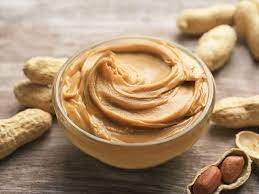Given its protein composition, healthy fats, and modest carbohydrate content, peanut butter can help to stabilize blood sugar levels during exercise.
Let’s look at how peanut butter can help in balancing sugar levels during exercise:
- Slow Energy Release: The body breaks down the protein and good fats in peanut butter gradually. Due to its slow digestion, peanut butter releases its energy gradually, giving your muscles a consistent supply of fuel when you work out. This may lessen the probability of sudden increases and decreases in blood sugar.
- Moderate Carbohydrate Content: Peanut butter has a moderate carbohydrate content even if it is not primarily made of carbohydrates. Together with the protein and fat content, these carbs can offer a well-balanced combination of nutrients to promote the generation of energy and the maintenance of blood sugar levels during exercise.
- Convenience and Portability: Peanut butter is an ideal snack to eat before, during, or after exercise because it is both portable and convenient. Its adaptability makes it possible to combine it with a variety of items, including fruits, crackers, and whole grain bread, giving you an easy option to fuel your exercises while keeping your blood sugar stable.
- Protein Content: During exercise in particular, protein is essential for the growth and repair of muscle tissue. A strong source of protein to enhance muscle repair and minimize muscle breakdown after extended or hard exercise sessions is peanut butter.
- Healthy Fats: By reducing the rate at which carbs from other meals are absorbed during exercise, the monounsaturated and polyunsaturated fats in peanut butter help balance blood sugar levels. This may help you maintain a more stable source of energy while you are exercising.
It is important to find out how your body responds to peanut butter during exercise, though, as individual reactions to food can differ. Furthermore, since peanut butter is high in calories and excessive consumption might result in weight gain if it is not balanced with overall food intake and energy expenditure, portion control is essential. As usual, for individualized guidance on diet and exercise, consult your nutritionist.






